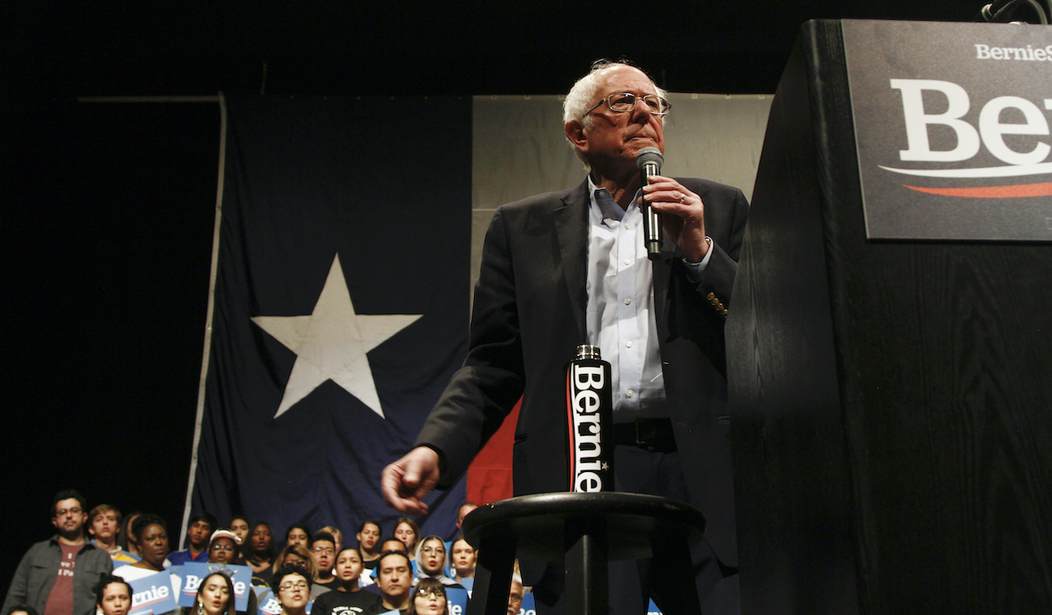Bernie Sanders' victories in the inaccurately counted Iowa caucuses, the crisply conducted New Hampshire primary and the Nevada caucuses have made two things clear.
One is that the Vermont senator, elected and reelected to Congress as an independent, is on the high road to becoming the presidential nominee of the oldest political party in the world, as I have argued in my two previous columns.
The second is less obvious but potentially of more lasting importance: The monolithic voting behavior of voters classified as nonwhite, assumed by prophets to continue an endlessly lasting Democratic majority, may be ending.
Black Americans have been voting around 90% Democratic for more than half a century, since 1964. During a similar period, from the Civil War to the Great Depression, they voted (when they were allowed to) almost unanimously Republican.
For the last half-century, blacks voted near-unanimously for one candidate in presidential primaries, even against sympathetic opponents: for Robert Kennedy over Hubert Humphrey, for Barack Obama over Hillary Clinton.
In 2016, there were signs of change. In the Michigan primary, blacks were split, with Clinton leading but not unanimously, 68% to Sanders' 28% in the exit poll. The general election poll showed black women essentially unanimous -- 94% for Clinton to 4% for Donald Trump -- but black men noticeably less so, 82% to 13%.
This year, Joe Biden, the first black president's choice for vice president, has been counting on near-unanimous support from black voters. But he's not getting it.
The Nevada caucus entrance poll showed him leading Sanders by just 9%, 36% to 27%, a margin that amounts to 1% of the 11% total black electorate. An 86% to 14% margin, like Clinton's over Sanders in the 2016 South Carolina primary, would have amounted to 8% of the Nevada electorate. Big difference in a contest when non-blacks are closely divided.
Recommended
Nor is Biden getting the near-unanimous support his backers assumed in polls in South Carolina, whose Democratic primary electorate was 61% black last time. At this writing, February South Carolina polling shows Biden leading Sanders by just 24% to 21% and averaging only 36% among blacks in three polls.
There's at least fragmentary evidence that President Trump may run better with black voters, especially young men, than he or other Republicans have for many years.
What seems to be happening here? It makes sense for people who identify as members of a disfavored minority group to vote unanimously for one party or one candidate. "Unity" -- the word I've heard black preachers repeat over and over when favored candidates appear at services -- increases their leverage.
But there eventually comes a time when racial identity chafes less and other issues obtrude. The New Deal got many blacks to abandon the party of Abraham Lincoln. Despite the lamentations of Ta-Nehisi Coates and The New York Times' 1619 Project, perceptions that race relations have improved, and that black unemployment has plunged to the lowest ever measured in the Trump years, may switch some black voters away from the party of Lyndon Johnson.
What about Hispanic voters, who, unlike blacks, are increasing (slowly) as a percentage of the electorate? For many years it was assumed that their paramount issue was immigration. But they never voted unanimously or uniformly across the country, and those of the Hispanic subgroup coming closest to unanimity (Puerto Ricans in New York) were always U.S. citizens.
Nor did they recoil, as expected, from Trump in 2016, who actually ran slightly better among Hispanics than Mitt Romney had four years before. They formed no more than 3% of the electorate in states that turned out to be pivotal in 2016, except for Florida, where Trump and Republican statewide candidates in 2018 got enough Hispanic votes to win.
Hispanics tend to be younger and lower-income than average. That helps explain why Bernie Sanders, who has been running best with young and low-income voters, won 50% of Hispanics in Nevada, compared with 29% of whites and 28% of blacks. Hispanics seem to be voting similarly to whites of similar age and economic situation.
In contrast, the three candidates with more liberal records on immigration who are favored by white college grads -- Pete Buttigieg, Elizabeth Warren, Amy Klobuchar -- got only a total of 22% of Nevada Hispanics' votes.
Bottom line: Blacks and Hispanics, to different degrees, are undermining the notion that nonwhite voters are ineluctably wedded to the Democratic Party and walled off from the rest of political America.

























Join the conversation as a VIP Member